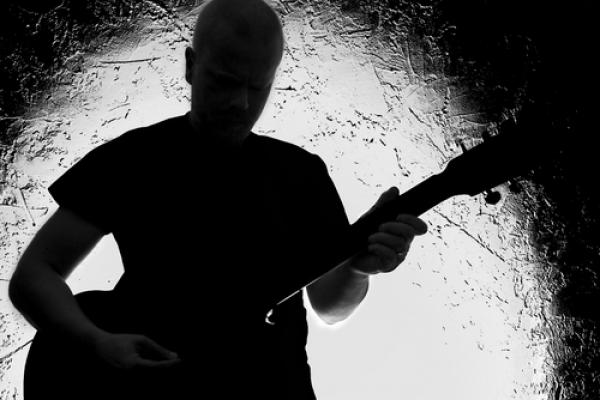More than once I’ve been referred to as a modern-day Troubadour. I’ve always liked this designation because it has a romantic, archaic ring to it that sounds just a little bit more flattering than mere singer/songwriter, naturally appealing to my vanity. But it once occurred to me that I wasn’t entirely sure of its meaning and thought I should look it up.
Not surprisingly, I discovered the word to have various historical uses and nuances. But the definition that intrigued me most, and which I recognize as fairly accurate of my own sense of calling and vocation is this:
Troubadour:
a lyric poet sent by one (usually of the King’s court)
with a message of chaste love to another.
Well … there you go. Just two weeks ago (on Valentines Day) I posted a song and message of chaste love in a blog. In it, I celebrated 30 years of marriage to my wife Nanci; a union that has resulted in three beloved (now adult) children, their own unions to beloved others, two grandchildren, and a deeply meaningful, long-term foster relationship with a young woman and her beautiful children who, in fact, are coming over for dinner tonight. I can’t wait.
Although not every chaste union strives to produce offspring, Fr. Gabrielle of St. Magdalen, in his meditative devotional Divine Intimacy, teaches that the highest glory of the chaste union is in it’s potential to become a willing “collaborator with God in the transmission of life.” That is: a relationship that is materially fecund; suggesting a dark, loamy richness capable of concealing and safeguarding a vulnerable seed, and providing a nutrient-rich soil from which it can spring to it’s own leafy uniqueness. It’s a lovely image.
Ironically, what struck me this morning is that Valentines Day is celebrated at the very onset of the season of Lent. And Lent, in contradistinction to Valentines, is essentially a season where the Christian “faithful” penitently consider the devastating disaster that is infidelity — particularly, infidelity to God, and by extension, to all that God is in faithful relationship to.
If you want a crash course on how papal politics really works, look no further than the saga of Scottish Cardinal Keith O’Brien.
On Friday, Britain’s most senior Catholic cleric grabbed headlines by telling the BBC that priestly celibacy was “not of divine origin” and that he’d be “happy” if priests had the option to marry.
On Saturday, O’Brien was back in the news, this time after four men reportedly accused him of “inappropriate acts” dating back to the 1980s.
By Monday, O’Brien had resigned as archbishop of Saint Andrews and Edinburgh and announced he would skip the conclave.
From champion of married priests to disgraced churchman within 72 hours, O’Brien’s trajectory is stunning but also emblematic of the frenetic and fever-pitched campaigning that occurs during the tiny window between a pope’s death or resignation and the election of his successor.
It was a proud moment in the Ericksen household. The five of us sat down for lunch and my six-year-old boy said, Let’s pray.
This is every pastor’s dream. Usually I have to coerce people into prayer. Now my boy is offering to pray. With great pride and a smile on my face I said, Yes, my Son. Will you lead us in prayer?
He took a pensive moment and agreed. We bowed our heads, closed our eyes, and then … this happened,Hi God! I want something really awesome for Christmas next year! Please get me something really great! Okay. That’s all. Amen.
Both of my boys began to laugh. My proud moment was gone and replaced by a bitter sense of disappointment. I instinctively thought to myself, “Christmas! It’s February, Dude. I hope you have a lot of patience, cause you’re not getting anything remotely close to ‘awesome’ for at least another 10 months! That’ll teach you to laugh at prayer. And, by the way, you shoulda’ prayed for freakin’ world peace!!!”
Cardinal Keith O’Brien of Scotland resigned on Monday in the wake of explosive charges that he had made “inappropriate” sexual advances to four men, three of them priests, and one now a former seminarian, starting in the 1980s.
O’Brien said he would skip next month’s conclave to elect a successor to Pope Benedict XVI, leaving the United Kingdom without a cardinal’s voice in the election of a new pope.
In a statement, O’Brien said Benedict had accepted his resignation effective immediately, and he appeared to allude to the events surrounding his sudden exit.
“Looking back over my years of ministry: For any good I have been able to do, I thank God. For any failures, I apologize to all whom I have offended,” said the cardinal, who turns 75 next month, which is the mandatory retirement age for bishops. Cardinals retain the right to vote in a conclave until age 80.
Dancing lessons from James Brown, water balloons popping in space, chicken and waffles on a stick, a sweet badminton rally, and a British guy finding the Wolf Eel. Some awesome links for an awesome day.
Yesterday on MSNBC’s Up w/ Chris Hayes, former White House Press Secretary Robert Gibbs said in an interview that when he took that position, he was told not to discuss the government’s secret drone program or even acknowledge its existence. According to Gibbs:
“When I went through the process of becoming press secretary, one of the first things they told me was, ‘You’re not even to acknowledge the drone program. You’re not even to discuss that it exists.'”
He added:
“Here’s what’s inherently crazy about that proposition: you’re being asked a question based on reporting of a program that exists. So you’re the official government spokesperson acting as if the entire program … pay no attention to the man behind the curtain.”
At this point, after a leaked Justice Department memo, the John Brennan hearings, several ongoing U.N. negotiations, and coverage by most major news organizations, any denial of a drone program is laughable. It does exist, it is not a secret, and it is regularly killing people in several countries.
While everyone was blowing up the Twittersphere decrying the injustices of the Oscars, as movies like Argo walked away with Best Picture honors, I was sitting in a Philadelphia hotel lobby trying to chew on everything I’d heard and seen at this year’s Justice Conference.
The two-day event brought together more than 5,000 people to promote dialogue around justice-related issues, like poverty and human trafficking; featured internationally acclaimed speakers such as Gary Haugen, Shane Claiborne, and Eugene Cho; and exhibited hundreds of humanitarian organizations.
While there is certainly more thinking and processing to be done, here are four things that stood out.
On Friday, House GOP leaders released their own Violence Against Women Act bill that strips protection for the LGBT community by removing all mention of sexual orientation and gender identity from the bill and also adding a loophole for Native American victims.





